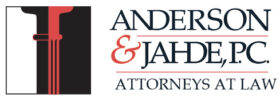Small businesses are the backbone of Colorado’s economy— 98% of all businesses in the state have fewer than 100 employees. Because Colorado’s Constitution allows “Home Rule” jurisdictions to enact their own sales and use tax ordinances inconsistent from Colorado’s sales and use tax laws, businesses often have great difficulty wending their way through the variations between Colorado’s tax laws and those of a Home Rule jurisdiction such as Denver. Failure to plan for, and accurately comply with, myriad conflicting state, county, and municipal laws can jeopardize businesses just as they are getting started.
All Colorado and Denver based businesses, whether new or established, need to be mindful of the following:
- The taxing jurisdiction(s) in which they are located.
- Whether they have a sufficient “Nexus” with other taxing jurisdictions to be taxed by them.
- Whether they are in a “Home Rule” Jurisdiction, such as Denver, which might have its own sales and use tax laws that differ from Colorado’s.
The Colorado Department of Revenue administers and collects Colorado state sales and use taxes and many other non Home Rule jurisdictions. Home Rule jurisdictions typically administer and collect their own sales and use taxes. Businesses located in Denver, for example, will need to understand multiple sets of sales and use tax rules—Colorado’s sales and use tax rules, Denver’s sales and use tax rules, and, perhaps, the rules of other taxing jursidictions.
1. Determining Your Taxing Jurisdiction.
There are occasions when a business’s postal address differs from the city with jurisdiction to tax its transactions. For example, most businesses located on the North side of Belleview and East of 1-25 have an Englewood postal address, but are actually within the taxing jurisdiction of the City and County of Denver.
Getting this correct is important for at least two reasons. First, these businesses must ensure they are collecting sales tax at the correct rate, and remitting it to the correct jurisdiction—Denver. Second, these businesses must ensure that their vendors are charging them the correct city’s tax. Most vendors look only at the postal address, and charge tax accordingly. But for the businesses in our example, paying tax to the wrong jurisdiction can be disastrous. If and when Denver conducts an audit, it will assess a Denver use tax at the full amount (without giving credit for the Englewood tax already paid). The business will then have to pay the whole amount of use tax to Denver, and apply for a refund from Englewood for the taxes they have already paid. To make matters worse, their claim for refund to Englewood may be time barred by the statute of limitations.
To look up your location(s), follow this link to the Department of Revenue’s website.
2. “Nexus”
Once you know the taxing jurisdiction in which you are located, you must also determine whether you have “Nexus” with other jurisdictions, which may require you to be licensed in, and collect and remit sales tax for, their jurisdiction. This generally only applies to businesses that make deliveries to its customers outside of its own home jurisdiction.
The Colorado Supreme Court has ruled a business with the following in a jurisdiction may have the required “Nexus” with that taxing jurisdiction—1) a warehouse or other building; 2) an office; 3) a store; 4) a salesman; 5) repair or customer assistance personnel; 6) locally directed advertising; and 7) employees working in the city. Employees doing deliveries or repair work in another jurisdicition might be sufficient to establish Nexus, although most jurisdictions (including Denver) do not assert jurisdiction based on deliveries unless the business makes more than one delivery in the jurisdiction in a 12 month period. As a result, a business located in Aurora that regularly delivers to customers in the surrounding cities (Englewood, Denver, Centennial, etc.), may have sales tax licensing, collection and remittance obligations in each of those cities.
3. “Home Rule” Jurisdictions.
Today, Colorado has 72 separate home rule cities, Denver among them. For more information on specific jurisdictions, click here.
As “Home Rule” jurisdictions, they may tax transactions that are not taxed by Colorado. To use an example from Denver, its taxation of software differs from Colorado’s. Though it has over the years waivered, today Colorado generally only taxes software that is delivered on a tangible medium (like a CD, or thumb drive). Software downloaded over the Internet is not taxable by Colorado. Denver, quit differently, imposes a sales (or use) tax on all software (unless custom designed), regardless of the means by which it is delivered or whether it is downloaded from the internet.
Differences may also be found in exemptions. For instance, Denver defines “charitable organizations” differently from Colorado, and requires these organizations to be licensed with Denver to qualify for its exemption from taxation. Again, a customer may be exempt from sales tax at the state level, but subject to sales tax by Denver (or another Home Rule jurisdiction).
Unfortunately, the only way to determine what may be taxable, not taxable, or exempt from sales tax in Home Rule jurisdictions is to dig into their respective municipal tax ordinances, which generally may be found on the cities’ websites, or at www.municode.com.
While the structure of Colorado’s sales and use tax laws can be confusing and time consuming for businesses, there are certain strategies that may be employed to lessen these burdens. To investigate these options, call one of the experienced tax attorneys at Anderson & Jahde.
